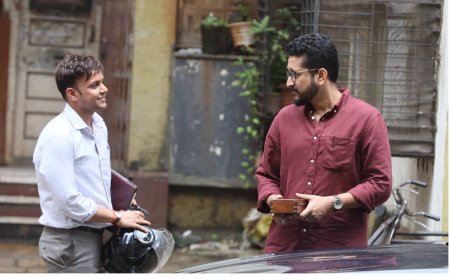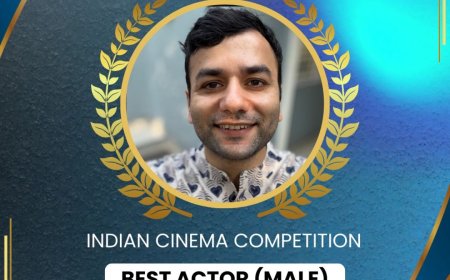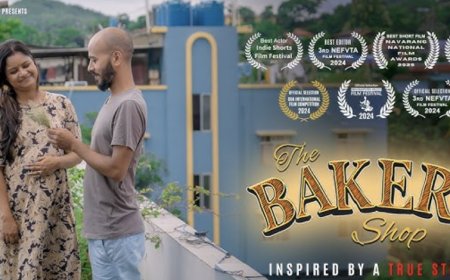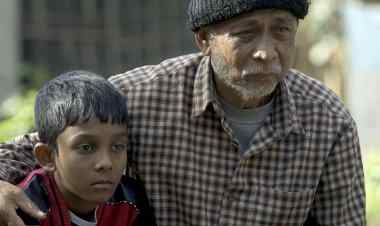Interview with the filmmaker, Rajni Basumatary
Dipankar Sarkar talks to Rajni Basumatary, the director whose latest film 'Gorai Phakhri' (Wild Swans, 2023) has gained recognition at the International film festival.
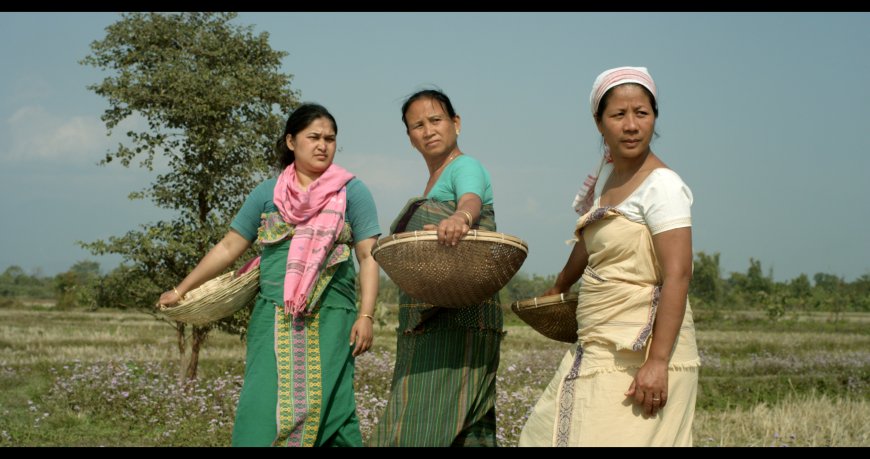
Rajni Basumatary talks about her award-winning film Gorai Phakhri (Wild Swans, 2023)
Rajni Basumatary, a multifaceted artist excelling in scriptwriting, directing, acting, and producing, unveils her third feature film, Gorai Phakhri (Wild Swans, 2023). Nestled in the picturesque foothills of Bodoland in Northeast India, the narrative delves into the intricacies of women's lives within a patriarchal society, navigating the aftermath of decades-long armed conflict between the State and separatist groups.
Congratulations on winning the Best Indian Language Film at the 29th Kolkata International Film Festival and the Best Director award at the Sailadhar Baruah Film Awards ‘23 (N.E.). How important are these wins to you as a filmmaker?
The end of 2023 was great with the news of winning the Best Film in the Indian Language Films category at the 29th Kolkata International Film Festival. The year 2024 started fabulously with the achievement of winning the Best Director award at the Sailadhar Baruah Film Awards '23 (N.E). It has been truly overwhelming. To be honest, it's a huge deal for us, not just for the honour attached but also for the prize money involved in both of these festivals. For independent filmmakers like us, every penny is a blessing. Therefore, the entire team of Wild Swans/Gorai Phakhri and I express my gratitude to the Kolkata International Film Festival and the organizers of the Sailadhar Baruah Film Awards.
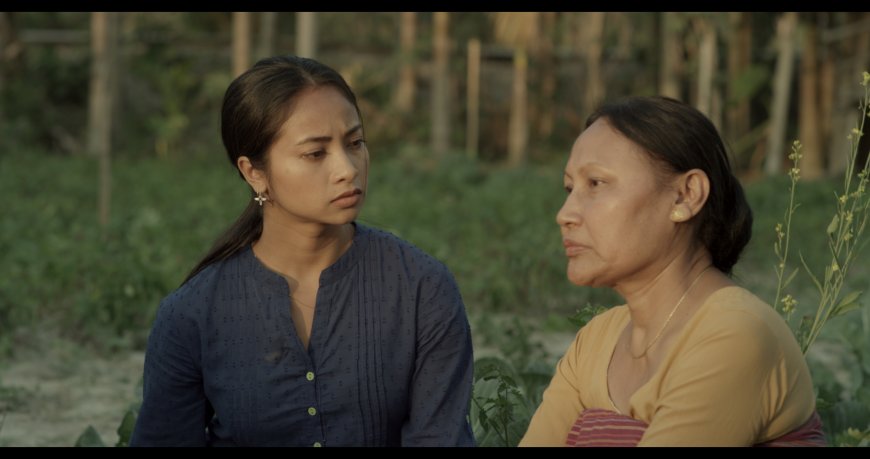
How did you get the idea for a film centred on interconnected stories of village women challenging patriarchy within the context of armed conflict in India's Northeast region?
As a woman from this region, I have observed how women's lives have been affected by militarization in a society steeped in patriarchy. Patriarchy persists even in societies where social evils like purdah for women, dowry, or heinous crimes like female infanticide are absent. Gender discrimination and inequality are prevalent in our society as well.
The script of the film was selected at the West Meets East Screenplay Lab of the Dhaka International Film Festival in 2023. How helpful was the selection?
I received some valuable suggestions from the mentors, and it was great to spend time with some bright minds. However, I wish there had been follow-ups as well. After completing the film, I attempted to show it to the mentors, but unfortunately, I didn't receive any response from them. I had hoped they would be curious to see how the script they had mentored turned out after filming.
Distinguished anthropologist Dolly Kikon was also a part of the project. How did it help you?
I connected with Professor Dolly Kikon through social media after she watched my earlier film, Jwlwi - The Seed (2019) At that time, she was teaching at the University of Melbourne. After a few interactions, I quickly realized her brilliance in her academic field and her passionate commitment to the cause of the northeast region. Impressed by her writings and public messages, I requested her to review my script. Her sincerity shone through the process. Given that this film is community-centric, the feedback and suggestions from an anthropologist like her added a significant amount of depth and layers. I am immensely thankful for her valuable contribution to the film.
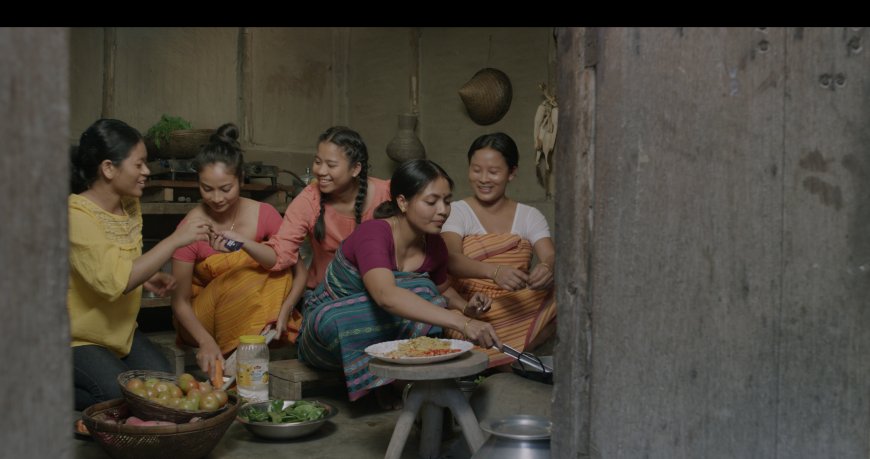
Tell us about the casting of the film.
Casting is of utmost importance to me. Just like in my previous films, I took great care in selecting actors for Gorai Phakhri. The film features five/six very important characters, each of whom is complex and layered. We sought out natural actors and were fortunate to find fantastic performers not only for the central roles but also for the supporting characters.
The story is seen through the eyes of a young, city-bred scholar who visits the village for her fieldwork. Her romanticized notion of rural life is shattered as she witnesses how long-standing militarization and deep-rooted patriarchy have impacted the everyday lives of women in the villages. Helina Daimary portrayed this scholar's character perfectly as if it was tailor-made for her. An academic and social activist, Anjali Daimary returned to the world of cinema after approximately 20 years, effortlessly embodying a crucial character in the film.
Two other pivotal characters were skillfully played by Sangeena Brahma and Mithinga Narzary. Additionally, there are two teenage characters portrayed beautifully by Dwijiri B Basumatary and Milina Daimary. The women in Badagami village, where we shot the film, surprised me with their natural talent for acting in some important roles.
How did cinematographer Chida Bora contribute to your vision?
Working with Chida Bora has been a pleasure. He is cool-headed and creative, capable of producing a visual treat even with limited resources. His exceptional skill is evident in how he highlights the stunning beauty of the landscapes we film in.
Can you elaborate on your collaboration with Tinni Mitra, a National Award-Winning editor?
I usually find comfort in working with the same set of professionals. Another National Award-Winning film editor, Hemanti Sarkar, had edited my previous film. However, during the editing of Gorai Phakhri, Hemanti was occupied with projects like Lal Singh Chadda (2022) and Pippa (2023) She kindly recommended Tinni, another National Award-Winning editor, who had collaborated with Hemanti on Peepli Live (2010).
Looking back, I consider Tinni to be a blessing to the film. For me, talent alone is not enough; I prefer to work with individuals whose wavelength matches mine. Imagine working with someone highly talented, only to discover in the middle of our collaboration that he or she holds communal, malicious, or misogynistic views!
At the same time two other National Award-winners, Hemanti Sarkar and Hemant Gaba are the creative consultants.
I have known Hemant for seventeen years, and we have collaborated on numerous projects, extending beyond feature films. He is a selfless friend, always generous with his advice. I trust his judgment because he never sugarcoats his opinions. Hemanti edited my last film, 'Jwlwi - The Seed.' Besides being a fantastic editor, she is a wonderful human being. Her sense of ethics and morality is truly inspiring.
Dolly Kikon, Hemant Gaba, and Hemanti Sarkar have been with me since the first draft of Gorai Phakhri. They served as my sounding board and more during the scriptwriting process. I can't thank them enough for their invaluable contributions in bringing layers and depth to the script."
During what stage of your film did Jani Viswanath, as a producer, become involved with the film?
Jani too has been involved with this film since its first draft. In my last film, Jwlwi - The Seed,' she served as my co-producer while I took on the role of producer. For this film, our roles switched—she took on the role of the producer, and I became the co-producer. Jani has been a dream producer, creatively non-interfering yet always available when I needed her advice.
How did Amrit Pritam, the sound designer, contribute to crafting the impact of sound in your storytelling?
One aspect of the film that receives applause at festival screenings is the sound design. Amrit Pritam, along with his partner Debajit Changmai, has done an exceptionally good job. Their expertise, combined with their understanding of the locations, community, and cultures portrayed in the film, has contributed to the success of the sound design. Amrit Pritam also worked on the sound design for my previous film, and by now, we share a 'sound' understanding—both literally and figuratively.
What message do you aim to convey through the film?
My message is that the belief in gender equality in our society in northeast India is a myth. Oppression is not confined to those in purdah or solely to those facing dowry-related harassment. The unequal sharing of family property between sons and daughters is a problem. Similarly, when parents, despite having the means, choose to educate only the son, forcing the daughter to drop out of school or college, that's also problematic. These are the issues I have aimed to highlight in the film.
What’s your release plan?
The film is currently on its festival circuit and is also being screened in Boro villages through mobile screenings, following the tradition of Boro films. Additionally, we have plans to release it in selected theatres in the Boro areas and Guwahati, either next month or in March.
Lastly, how would you like to encourage budding filmmakers who want to pursue a career in regional cinema?
Every film has its viewers. I no longer feel intimidated by big-budget, star-studded films. Even the smallest budget can result in a film that surpasses the appeal of a big-budget production. It's essential to start small but with utmost sincerity. Approach your film as if acquiring the skills needed to bring bread and butter is your only option while waiting for your film to soar.
***
What's Your Reaction?







